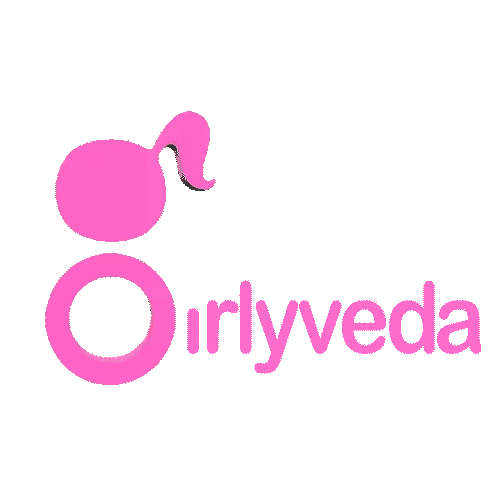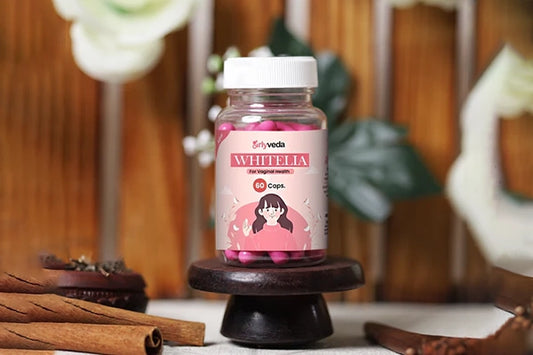In the contemporary world, a woman struggles a lot to have a balance in her career, family responsibilities, and personal wellbeing. Menstrual irregularities, stress, daily stress, hormonal imbalances, and fertility challenges are common for her.
As a woman, you want to deal with all these naturally. Turning to Ayurveda and using herbs like ashwagandha can help you a lot. Read this post to learn about:
- What Is Ashwagandha?
- Ashwagandha Benefits for Women
- How to Use Ashwagandha
- Potential Side Effects of Aashwagandha
What Is Ashwagandha?
Ashwagandha, highly acknowledged as Indian Ginseng, is an effective herb in Ayurveda. It is made of two Sanskrit words - Ashwa means a horse, and Gandha means smell. So, the term Ashwagandha means the smell of a herb and suggests that the herb brings the power and vitality of a horse.
Ashwagandha’s botanical name is Withania somnifera. It is also known as winter cherry. This herb is highly popular in Ayurvedic treatment due to its diverse health benefits and therapeutic properties.
Ashwagandha is native to India. It grows well in dry and hot climates. So, it is also found in northern Africa and the Mediterranean. Its regular consumption helps lower stress and restore physical balance. This herb contains compounds like:
- Withanolides
- Alkaloids
- Sitoindosides
How to Identify Ashwagandha
Ashwagandha is a small, woody shrub. It is up to 35 to 75 cm tall. Here is how you can identify this Ayurvedic herb/plant:
-
Leaves - Dull green, elliptic, and around 5 to 10 cm long.
-
Flowers - Greenish-yellow, small, bell-shaped.
-
Fruits - Red, berry-like, enclosed in a papery calyx.
-
Roots - Tuberous, long, and mildly aromatic.
Ashwagandha Benefits for Women
For thousands of years, ashwagandha has been used in Ayurvedic treatment. It helps deal with several health issues without any harmful effects if used well. Here, learn about the scientifically proven benefits of ashwagandha for women:
1. Balances Hormones
Hormones play a key role in a woman’s overall health, particularly reproduction, periods, perimenopause, and menopause. Consuming this herb regularly may help regulate the reproductive function and hormones in a woman’s body.
Scientific study
-
A 2019 study suggests that ashwagandha leaves positive impacts on the endocrine system, which governs stress responses, mood, and reproduction. This influence can be beneficial for dealing with depression, anxiety, and sleep issues.
2. Regulates Menstrual Cycles
Irregular menstrual cycles are common in most females these days. Taking ashwagandha powder, capsules, or tablets can help regulate menstrual cycles by balancing hormones.
Scientific research
-
A 2021 NCBI study states that consuming ashwagandha regularly can help females deal with PCOS (polycystic ovary syndrome), PID (pelvic inflammatory disease), and endometriosis.
3. Provides Relief from PMS Symptoms
PMS or premenstrual syndrome symptoms are headaches, bloating, and mood swings. Ashwagandha can help lower these symptoms naturally due to its anti-inflammatory properties.
Scientific evidence
- According to a 2012 NCBI study, consuming ashwagandha helps lower cortisol levels. Cortisol is a stress hormone and has a direct connection with PMS symptoms.
4. Helps Increase Fertility in Females
Increasing fertility is one of Ashwagandha benefits for female fertility. For this, it:
- Improves reproductive hormones like progesterone, FSH, and LH.
- Strengthens ovarian health and promotes healthy ovulation.
- Enhances libido and sex drive.
Scientific proof
- A study from the Journal of Ethnopharmacology, published on ScienceDirect’s website and done on animals states that ashwagandha can help improve ovarian follicle development and reproductive hormone levels.
5. Helps Lower Menopausal Symptoms
Night sweats, mood swings, sleeping issues, and hot flashes are common menopausal symptoms. Ashwagandha can help women during this period through:
- Lowering insomnia and improving sleep quality.
- Balancing progesterone and oestrogen levels.
- Improving bone health
Scientific study
- A 2021 study published in Complementary Therapies in Medicine found that ashwagandha helped females enhance hormonal balance and lower menopausal symptoms.
6. Lowers Stress Anxiety
Severe stress can badly affect a female’s mental health, reproductive system, and immune response. Several studies published on the websites of the National Library of Medicine and ScienceDirect have found that ashwagandha is highly beneficial in lowering stress and anxiety.
7. Improves Brain Function
Taking ashwagandha is helpful for cognitive health. By improving focus, memory, neuroplasticity, it helps enhance brain function. It is one of the highly acknowledged benefits of ashwagandha for women.
Scientific evidence
- A study published in the Journal of Dietary Supplements has found that taking ashwagandha for eight weeks can help improve memory and brain function.
8. Boosts Sexual Function
Ashwagandha contains aphrodisiac properties that help increase sexual desire and sexual wellness. It happens due to a reduction in stress levels and a lift in mood.
Scientific studies
-
A 2023 study states that consuming ashwagandha root extract regularly can help increase sexual desire in females.
-
According to a 2022 NCBI study, taking ashwagandha can improve sexual function in women with balanced hormones and HSDD (hypoactive sexual desire disorder)
How to Use Ashwagandha for Female Fertility
After knowing all these benefits of ashwagandha for women, you will surely love to use it to enhance your reproductive, sexual, mental, and general health. Here is how you can use ashwagandha:
-
Ashwagandha Powder (Churna) - Mix 1 teaspoon of ashwagandha powder in a glass of warm milk or honey. Take this mix once or twice a day for two to three months.
-
Ashwagandha Capsules/Tablets - Consume an ashwagandha capsule of 300 to 600 mg twice a day. It should have 5% withanolides. You can take its capsule or tablet form with warm milk or water.
-
Ashwagandha Tea - Brew a teaspoon of dried ashwagandha root in a cup of water. Boil the water for 10 minutes.
Potential Side Effects for Ashwagandha
Generally, taking ashwagandha in a capsule/tablet, powder, or decoction form is safe. Misuse or overdosing may be harmful. Here are some ashwagandha side effects for your acknowledgement:
- Diarrhoea or stomach upset
- Nausea
- Drowsiness
- Increased thyroid function
- Interactions with sedatives or thyroid medication
Please do not take ashwagandha in any form if you are:
- Breastfeeding a child or pregnant. Take it if your doctor allows.
- Suffering from autoimmune health problems.
- Taking immunosuppressants or hormone therapies.
Final Words
Ashwagandha is more than a trending herb. It is science-backed and time-tested adaptogen, which offers numerous health benefits. Ashwagandha benefits for women include stress management, healthy reproductive function, and PMS and menopausal symptoms.
At Girlyveda, we offer Mother Bloom, which is Ayurvedic fertility medicine for females. Formulated using nine natural herbs like ashwagandha and kachnar, it helps regulate periods, lower abnormal discharge, and manage blood sugar. It helps improve overall reproductive health and leads to improved conception chances. Buy It Now.
FAQs:
Q1. Is ashwagandha good for female fertility?
Ans: Yes, ashwagandha is good for female fertility. It helps improve fertility by balancing reproductive hormones, lowering stress levels, and increasing sexual desire.
Q2. Does ashwagandha increase female hormones?
Ans: No, it does not increase female hormones. Its regular intake helps regulate hormones.
Q3. Can ashwagandha help you get pregnant?
Ans: Yes, ashwagandha can help you get pregnant. For this, it tones your overall reproductive system by addressing all associated symptoms and root causes.
Q4. How to use ashwagandha for female fertility?
Ans: You can take ashwagandha in a capsule/tablet, powder, or decoction form. You can take a capsule/tablet of 300 to 600 mg and a teaspoon of ashwagandha powder or root extract. The best idea is to take it as per your doctor’s recommended dosage.
Q5. Are there any negative side effects to ashwagandha?
Ans: Usually, consuming ashwagandha is safe. It may carry side effects if you misuse it or go beyond your recommended dosage.












Thoughts on "Ashwagandha Benefits for Women: Balance Hormones & Fertility"